If Tenmoku is not cleaned properly over time, a layer of tea stains will form inside the Tenmoku, but that is not the "colorful treasure light" cultivated by nurturing the Tenmoku.
If tea is not finished and is left in the Tenmoku for a long time, or if the used Tenmoku is not cleaned in time and left unused, the tea polyphenols in the tea leaves and the metal elements in the tea rust will undergo an oxidation reaction, resulting in the formation of tea stains that adhere to the inner wall of the Tenmoku.
One.Should tea stains be cleaned?
- Affecting aesthetics:
Tea can indeed nurture Tenmoku, but it does not mean that the Tenmoku should be in contact with tea soup all the time. Not only will the colorful luster not be cultivated, but it may also cause rust to form on the Tenmoku.
Tenmoku's body is made of iron, and the glaze is an iron crystal glaze, especially for oil drop pattern Tenmoku! (Many oil drop Tenmoku on the market do not have a vitrified layer to isolate oxygen and water vapor, while most hare's fur pattern Tenmoku have a vitrified layer to isolate oxygen and water vapor.)
Since iron is easily oxidized into brownish iron oxide in the air, if it is soaked in tea soup or not dried after use, it will be gradually oxidized by water vapor into Fe3O4, which is reddish-brown and looks like rust, and it will greatly affect the aesthetics.
Tea stains on Yixing clay teapots.
- Affecting health:
From a safety and health perspective, not cleaning Tenmoku is not conducive to physical health because not cleaning tea stains for a long time may lead to the growth of mold.
- Affecting the efficacy of Tenmoku itself:
The Tenmoku body contains a large number of small pores, which can help maintain the temperature of the tea soup. The degree of water quality improvement depends on the coverage of the pores. The pores inside the body can adsorb calcium and magnesium particles, reducing water hardness and making it soft and mellow. Moreover, Tenmoku has a good effect of keeping the tea soup fresh and can prevent it from spoiling. If the Tenmoku is not kept clean and is covered with tea stains, it will block the pores, affecting the Tenmoku's insulation, water quality improvement, and preservation functions.
- How to clean Tenmoku?
- Daily cleaning: After drinking the last cup of tea of the day, rinse the Tenmoku with hot water to remove a small amount of tea stains attached to the glaze surface. Then rinse it again with normal water and finally place the Tenmoku in a ventilated area or use a specially prepared cleaning cloth to dry it.
- Deep cleaning: Generally, a comprehensive cleaning is needed every three to five days. At this time, toothpaste or dishwashing liquid can be used for cleaning, and then wiped dry with a cleaning cloth or left to air dry naturally. Remember: daily cleaning and regular cleaning are equally important for Tenmoku.
Keeping Tenmoku clean and hygienic at all times is like keeping ourselves clean and refreshed. We nurture Tenmoku, and Tenmoku nurtures us.
Don't be too hasty in nurturing Tenmoku, and don't force the legendary colorful luster. Leave it to time and fate.


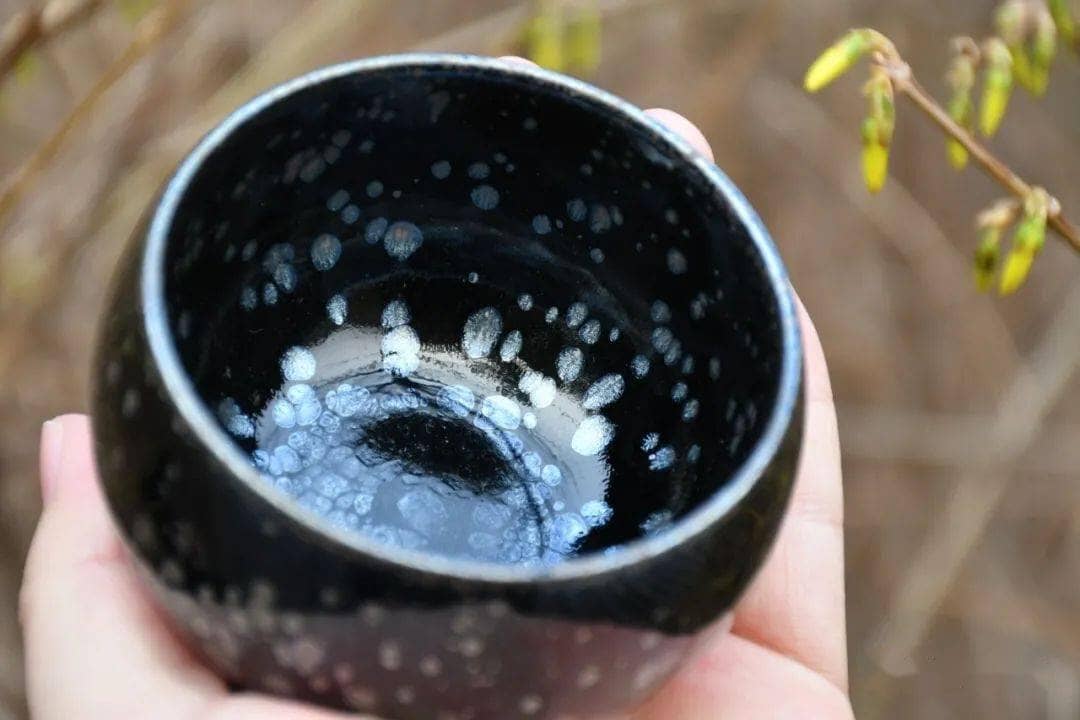
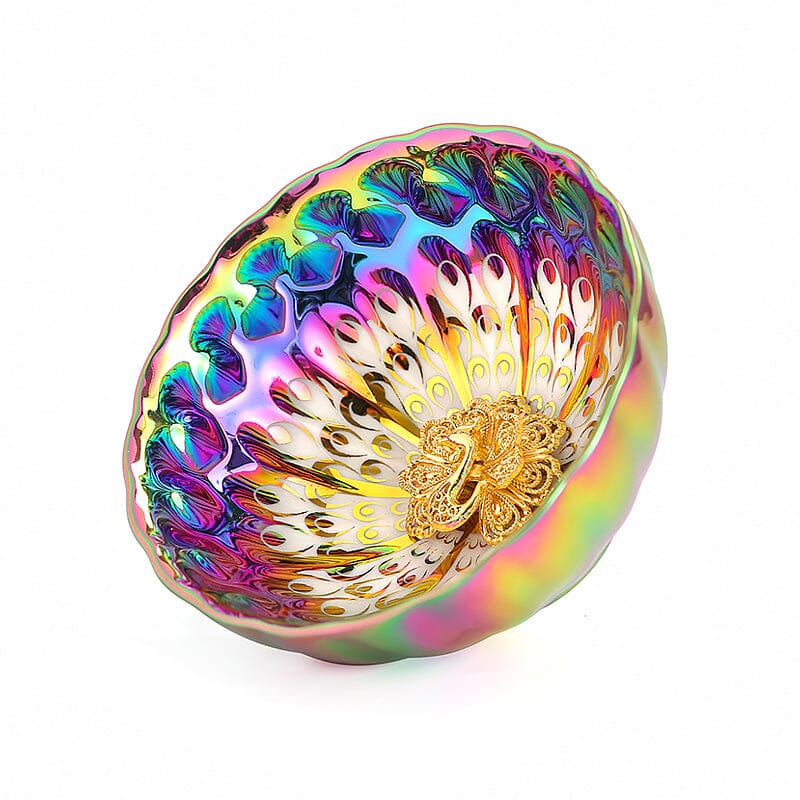
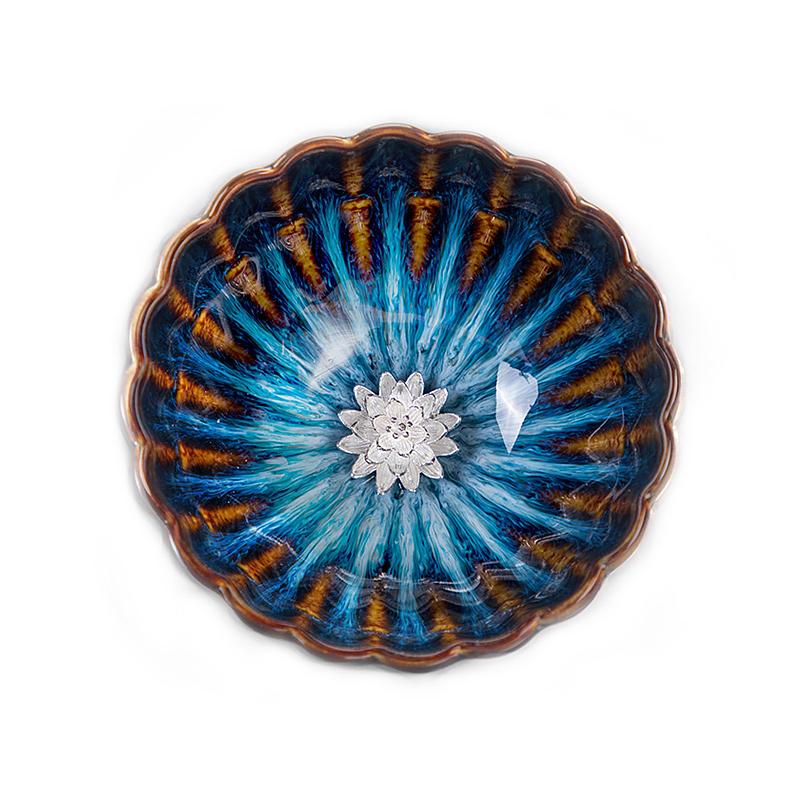
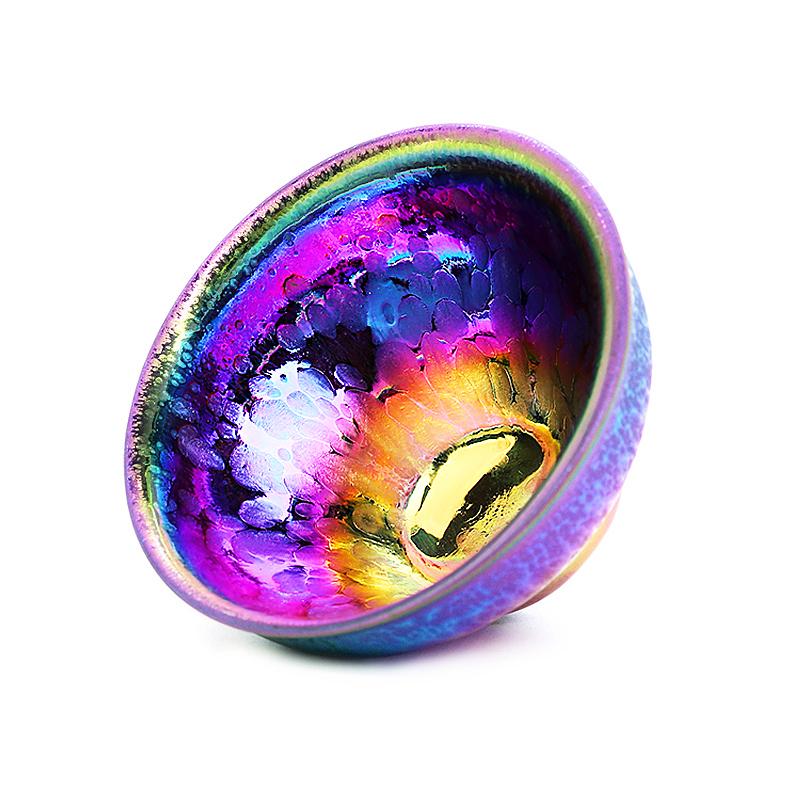
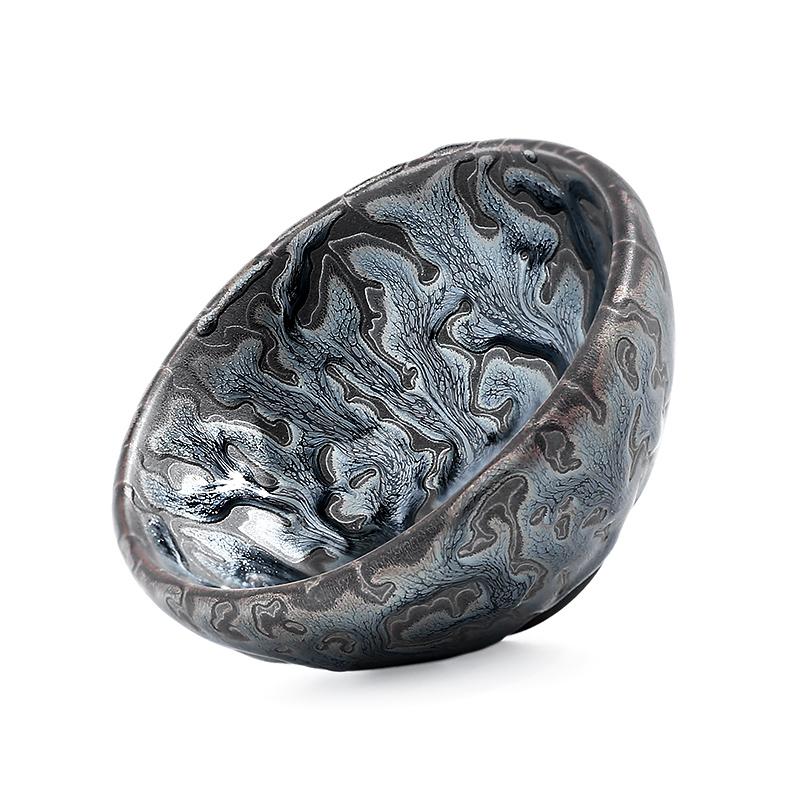
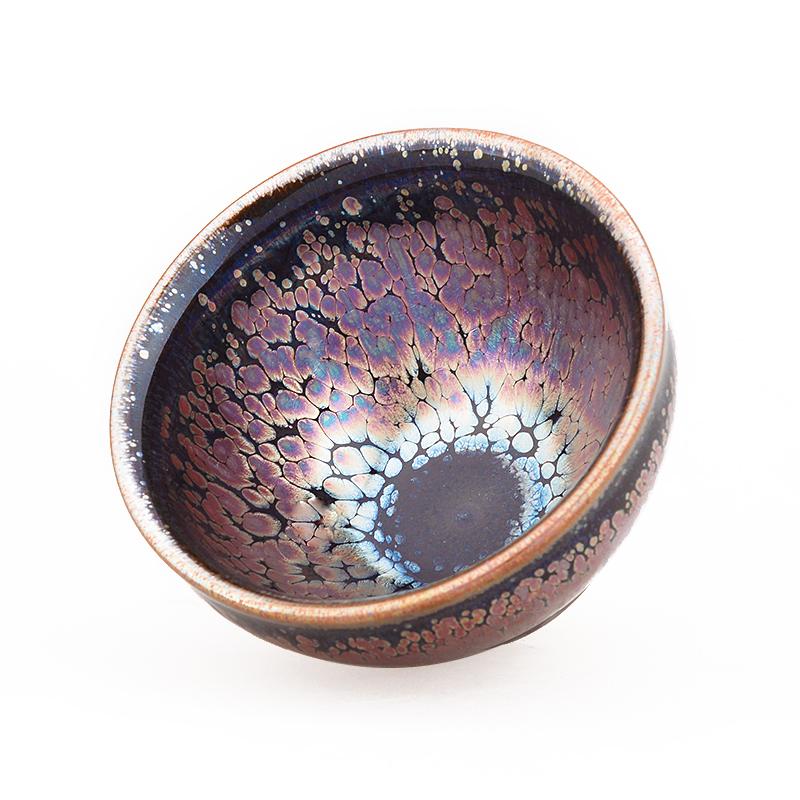
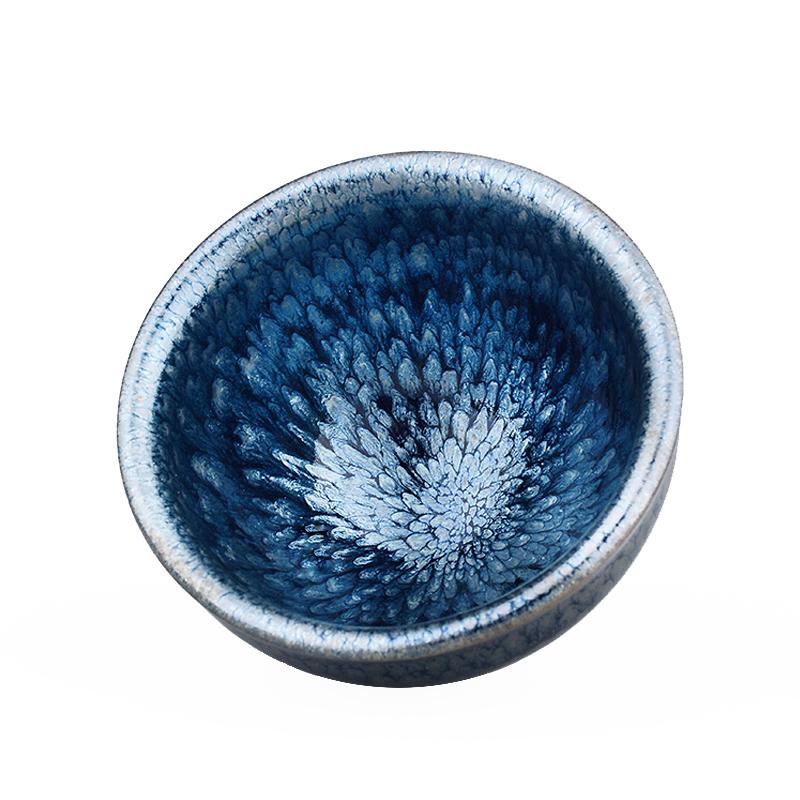
Share:
Between the breathing of a teapot, nourish the water and nourish the person
How to clean and use old Tenmoku for drinking tea